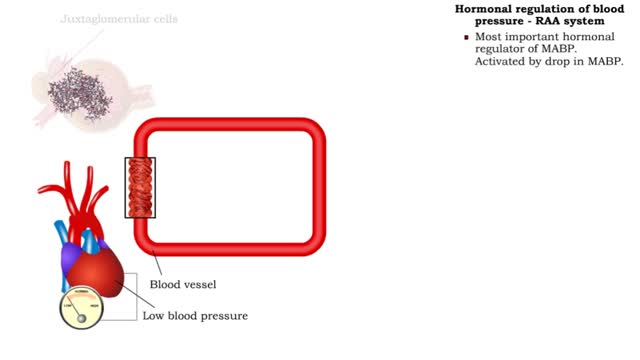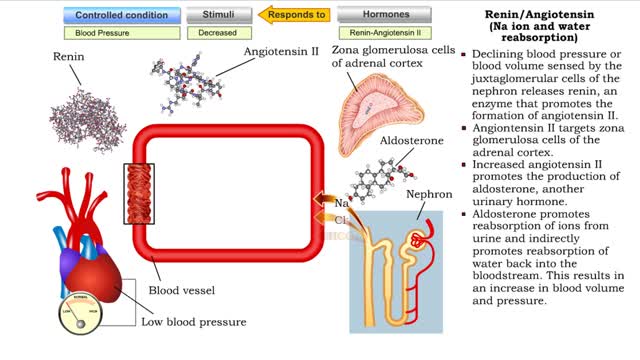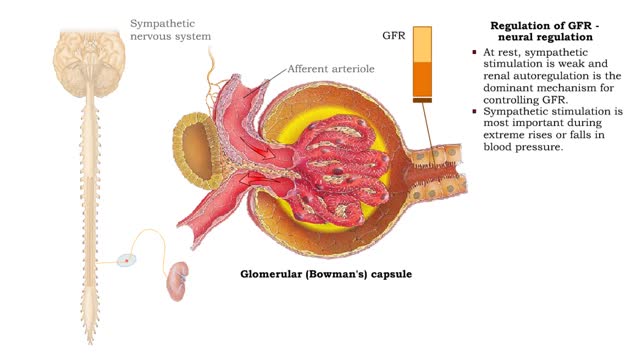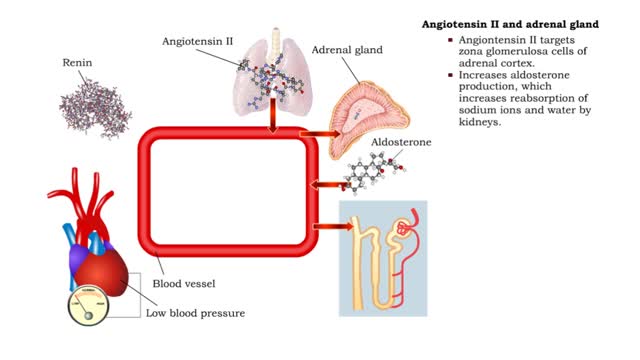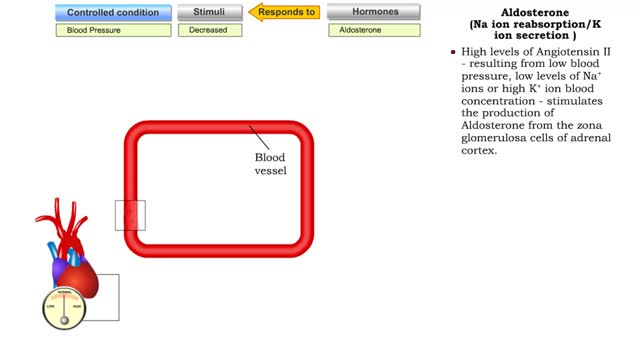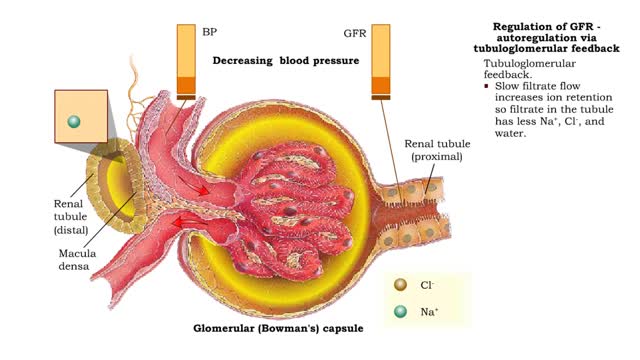Search Results
Results for: 'Angiotensin'
Hormonal regulation of blood pressure - RAA system
By: HWC, Views: 12170
■ Long-term regulation of MABP is under hormonal control. • Hormones that affect blood pressure and volume: the renin-angiotensin-aldosterone (RAA) system, antidiuretic hormone (ADM), and atrial natriuretic peptide (ANP). ■ Most important hormonal regulator of MABP. Activated by drop in...
Renin/Angiotensin (water gain from urine & Na ion and water reabsorption)
By: HWC, Views: 11640
• Sensing declining blood pressure or blood volume, juxtaglomerular cells of the nephron release renin, an enzyme that promotes the formation of angiotensin II. • Angiotensin II targets smooth muscle cells in blood vessels that provide blood to the nephron. • Angiotensin II causes thes...
Regulation of GFR: autoregulation via tubuloglomerular feedback, neural & hormonal regulation
By: HWC, Views: 12708
• When blood pressure is above normal, rapid filtrate flow reduces ion retention so filtrate in tubule has more Na+, C1-, and water. • It is believed that vasoconstricting chemicals from the juxtaglomerular cells are released when the macula densa cells detect higher water and ion levels in ...
Angiotensin II - kidneys, adrenal glands and dehydration
By: HWC, Views: 11745
• Angiontensin II targets cells in the proximal convoluted tubule of the nephron. ■ The reabsorption of Na+ and Cl- ions sets up an osmotic gradient favoring the retention of water. • Decreases urine production and increases blood volume and pressure. • Angiontensin II targets zon...
Atrial natriuretic peptide (vasodilation) & Aldosterone
By: HWC, Views: 11411
• Certain situations will cause the body's stress level to rise. • increased blood pressure will stretch the atria of the heart, stimulating the secretion of atria natriuretic peptide (MP). • ANP causes muscle cells in blood vessels to relax. • Blood pressure is lowered as a result ...
Regulation of GFR: autoregulation via myogenic mechanism Myogenic mechanism
By: HWC, Views: 13224
• GFR can be regulated by adjusting: • Blood flow in and out of the glomerular capillaries. • Surface area of glomerular capillaries. • There are three main ways to make these adjustments: • Renal autoregulation. • Nervous regulation. • Renal autoregulation occurs when...
Advertisement



